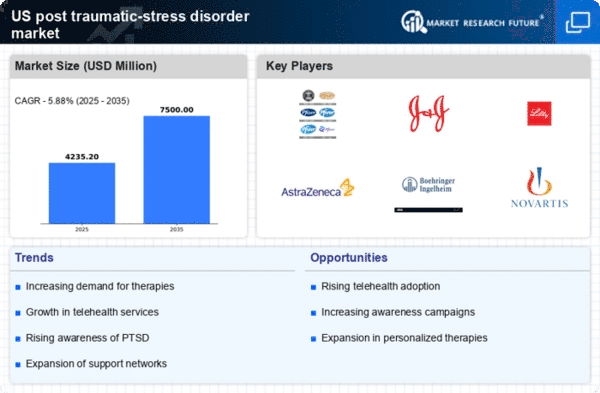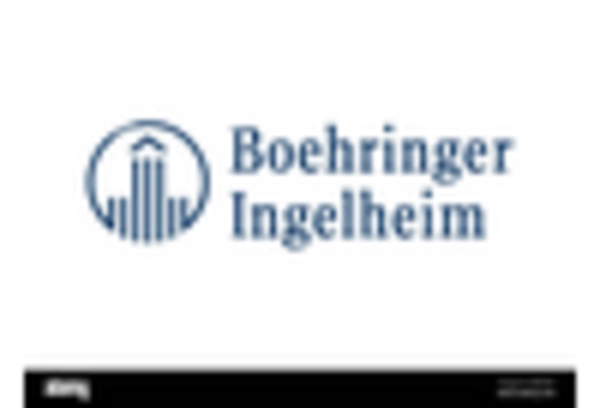Rising Incidence of PTSD Cases
The post traumatic-stress-disorder market is experiencing growth due to the increasing incidence of PTSD cases in the US. Recent studies indicate that approximately 7-8% of the population will experience PTSD at some point in their lives. This prevalence drives demand for effective treatment options, including therapy and medication. The market is projected to expand as more individuals seek help, leading to a potential increase in market value by over $3 billion by 2027. The rising awareness of mental health issues contributes to this trend, as more people recognize the symptoms and seek professional assistance. Consequently, healthcare providers are focusing on developing specialized programs to address the needs of PTSD patients, further propelling the post traumatic-stress-disorder market forward.
Government Initiatives and Funding
Government initiatives aimed at addressing mental health issues significantly impact the post traumatic-stress-disorder market. In recent years, federal and state governments have allocated substantial funding to mental health programs, including those specifically targeting PTSD. For instance, the Department of Veterans Affairs has increased its budget for mental health services, recognizing the high prevalence of PTSD among veterans. This funding not only enhances access to treatment but also encourages research into innovative therapies. As a result, the post traumatic-stress-disorder market is likely to benefit from improved treatment options and increased patient engagement, potentially leading to a market growth rate of around 5% annually over the next few years.
Growing Public Awareness Campaigns
Public awareness campaigns aimed at educating individuals about PTSD are playing a crucial role in shaping the post traumatic-stress-disorder market. Organizations and advocacy groups are actively working to reduce stigma and promote understanding of PTSD symptoms and treatment options. These campaigns often utilize social media, community events, and educational resources to reach a broader audience. As awareness increases, more individuals are likely to seek help, leading to a higher demand for PTSD-related services. This trend suggests a potential market growth of approximately 8% as public perception shifts and more people recognize the importance of addressing mental health issues, thereby positively impacting the post traumatic-stress-disorder market.
Advancements in Therapeutic Approaches
The post traumatic-stress-disorder market is witnessing advancements in therapeutic approaches, which are reshaping treatment paradigms. Innovative therapies, such as Eye Movement Desensitization and Reprocessing (EMDR) and cognitive-behavioral therapy (CBT), have shown promising results in alleviating PTSD symptoms. Additionally, the integration of virtual reality (VR) technology in exposure therapy is gaining traction, providing immersive experiences that help patients confront their traumas in a controlled environment. These advancements not only enhance treatment efficacy but also attract investment from pharmaceutical companies and healthcare providers. As a result, the post traumatic-stress-disorder market is expected to grow, with a projected increase in the adoption of these therapies by approximately 15% over the next five years.
Increased Focus on Mental Health in Workplaces
The growing emphasis on mental health in workplaces is influencing the post traumatic-stress-disorder market. Employers are increasingly recognizing the importance of mental well-being for productivity and employee satisfaction. Consequently, many organizations are implementing mental health programs that include PTSD awareness and support. This trend is particularly evident in high-stress industries, where employees may be more susceptible to trauma. As companies invest in mental health resources, the demand for PTSD treatment options is likely to rise. This shift could lead to a market expansion of around 10% as more individuals seek assistance through employer-sponsored programs, thereby enhancing the overall landscape of the post traumatic-stress-disorder market.

















